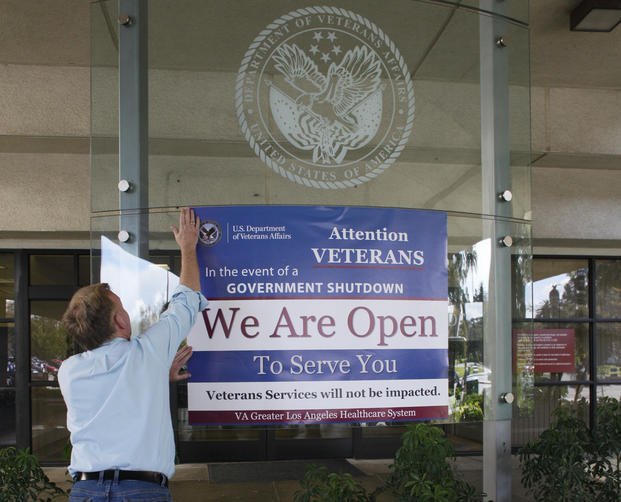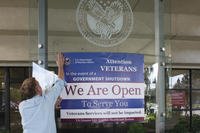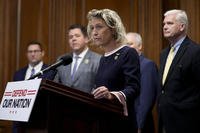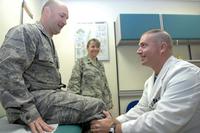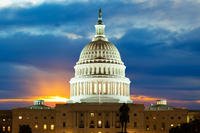Medical care and burials at its cemeteries would continue at the Department of Veterans Affairs in the event of a government shutdown, as would benefits such as disability compensation, pensions, education and housing assistance, VA Secretary Denis McDonough said Friday.
But the department would still feel the effects of federal closures, with workers furloughed and some offices shuttered, McDonough said during a press conference. Still, as a result of advanced appropriations that the VA receives each year from Congress, he said much of the department will continue operating.
The possibility of a government shutdown increased significantly this week as House members returned to their districts without reaching a deal on a bill that would have extended funding, or any deals on individual appropriations bills that fund federal agencies, including the Department of Veterans Affairs and the Defense Department.
Read Next: The Last Skirt Mandate in Marine Corps Has Been Nixed After Female Troops Advocated for Change
House Republicans failed to reach an agreement as members fought over provisions in an extended funding bill, known as a continuing resolution, and hard-liners balked at a procedural vote to fund the DoD for fiscal 2024. A shutdown, if it were to occur, would begin at midnight Sept. 30.
"We continue to closely monitor this situation ... and hope it gets resolved," McDonough said.
In the event of a shutdown, VA regional offices would close, career counseling and transition support services would cease, and national cemeteries would begin looking unkempt as grounds maintenance workers would be furloughed.
McDonough did not say how many of the VA's nearly 450,000 employees would go on leave without pay as a result of a shutdown. He said the VA was "making sure we understand with great precision who are excepted [from furlough] and who are not."
Under an agreement by Congress in 2011, the department receives advanced appropriations for health services each year from Congress to shield it from the partisan budget disagreements that have led to shutdowns three times in the past decade. Congress has resorted to temporary funding bills every year -- a stopgap measure to avoid shutdowns -- because lawmakers have been unable to agree on funding bills due to deep partisan divisions.
The department received more than $150 billion in funding in late 2022 to keep vital services for veterans running through fiscal 2024. Other benefits, such as disability compensation, pensions and many others, are not subject to the current budget deliberations.
McDonough said the department has not initiated the process of notifying employees of their status should a shutdown occur.
Under a government shutdown, exempt federal employees are those who would continue to work and receive a paycheck because their positions aren't tied to the annual appropriations process.
Excepted employees are emergency personnel who must continue working, even though they won't be paid until a federal budget is passed.
During the 34-day shutdown that occurred from December 2018 to January 2019, for example, U.S. Coast Guard personnel worked without pay, with some members relying on grants, charity and food drives to get by until an appropriations bill was passed.
"We need a full-year appropriation, especially at a time when we are providing more care and more benefits to more vets than ever before," McDonough said.
-- Patricia Kime can be reached at Patricia.Kime@Military.com
Related: Odds of Shutdown and Missed Paychecks for Troops Grow Amid Chaos in the House
